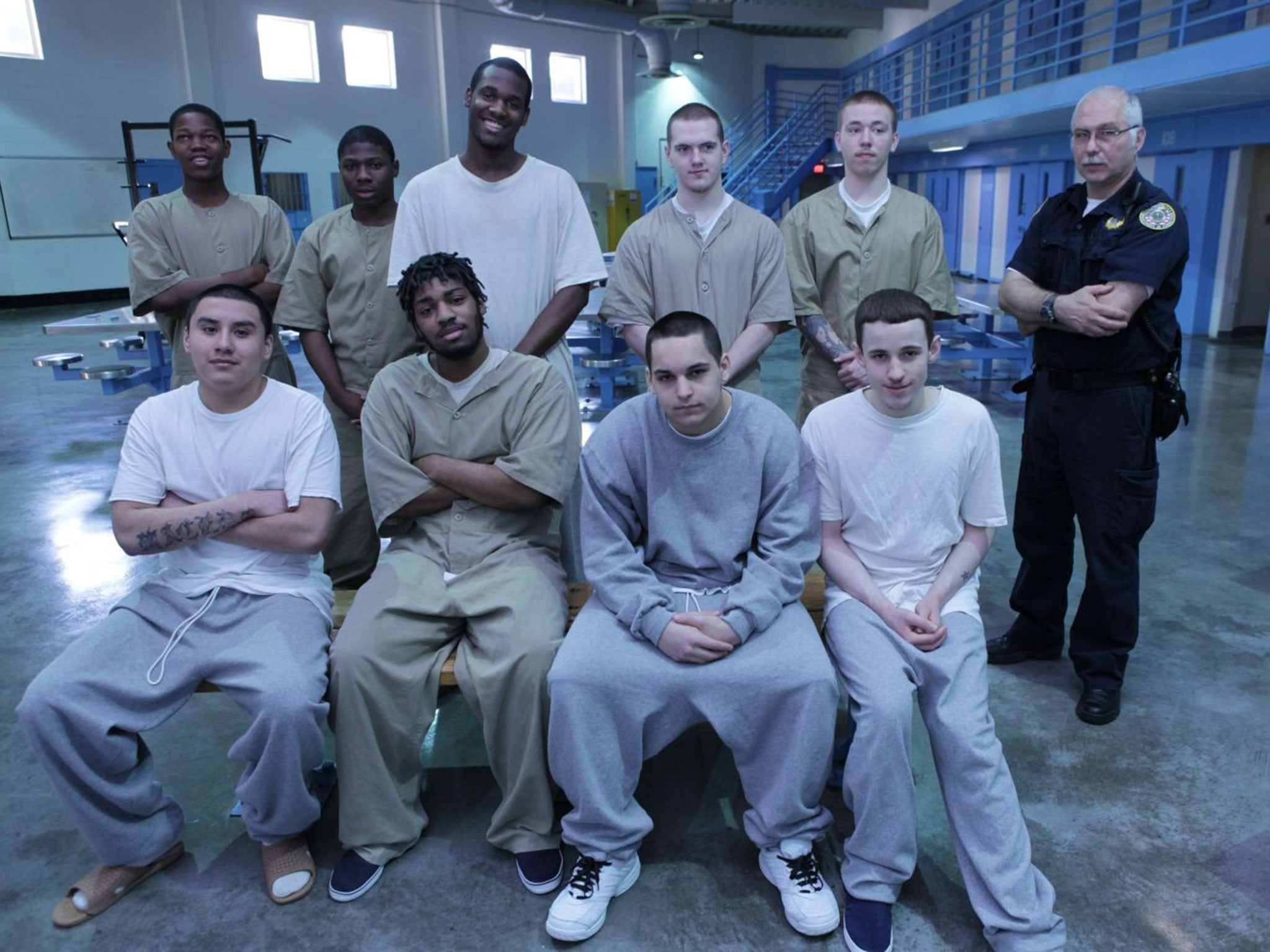America's convicted juveniles: The stories of those growing up behind the razor wire
The US is the only Western country that tries children in its adult justice system

Your support helps us to tell the story
From reproductive rights to climate change to Big Tech, The Independent is on the ground when the story is developing. Whether it's investigating the financials of Elon Musk's pro-Trump PAC or producing our latest documentary, 'The A Word', which shines a light on the American women fighting for reproductive rights, we know how important it is to parse out the facts from the messaging.
At such a critical moment in US history, we need reporters on the ground. Your donation allows us to keep sending journalists to speak to both sides of the story.
The Independent is trusted by Americans across the entire political spectrum. And unlike many other quality news outlets, we choose not to lock Americans out of our reporting and analysis with paywalls. We believe quality journalism should be available to everyone, paid for by those who can afford it.
Your support makes all the difference.Jesus Macedo-Perez was out driving with friends in his neighbourhood of Elkhart, Indiana, an industrial city on the banks of the St Joseph River known as the "RV capital of the world", but locally renowned for high crime rates, unemployment and communities ravaged by drugs.
While cruising the streets, Macedo-Perez, who had been running with gangs for as long as he could remember, bumped into a rival, Braxton Barhams. "He was making gang signs or something," Macedo-Perez says, when he reflects on the evening of 22 June last year.
"He said something, and I got possessed or something. I don't know, something came over me." His eyes widen with disbelief as he thumps his chest with his fist, his voice failing him suddenly. What he is unable to say, and has never said out loud, is that moments later, around 6pm, Macedo-Perez pulled a gun and took a single fatal shot at Barhams. Both were 16 years old.
Macedo-Perez is one of 40 young people at a maximum security prison in Carlisle, Indiana. A 90-acre compound carved into lush countryside – fortified by a 15ft fence topped with razor wire, a second electric fence and six guard towers – Wabash Valley is home to 2,000 of the state's most notorious criminals. Among them are the residents of Block D: teenagers who have reoffended in the juvenile system or are deemed so troublesome and violent that they have been tried and convicted as adults.
In the only Western country that tries children in the adult justice system, these young people are serving between 10- and 65-year sentences for crimes ranging from armed robbery to murder.
Their home, in a building separate from the adult inmates, is the subject of Kids Behind Bars, a touching and troubling new documentary from Wild Pictures. During five weeks of intensive filming, it was Macedo-Perez who had the greatest trouble sharing his story. "It took until the second-to-last week for him to say he had killed someone, he was so terrified of being judged," interviewer Eloise King recalls. "He didn't have a trial, he accepted a plea, so no one had ever heard his story. He was a child."
Finally, Perez recalls the moment he pulled the trigger: "I seen his face too, remember seeing him like, surprise face. I know that like me and him didn't get along, but damn, feel me, I just took his life."
For the past two years, Block D has also been home to Blake Layman, serving 55 years for felony murder.
He is one of five young people who, with Jose Quiroz, Anthony Sharp, Levi Sparks and Danzelle Johnson, broke into a stranger's house in October 2012. During the break-in, the homeowner, Rodney Scott, returned. He shot at them and killed Danzelle Johnson.
Under Indiana law, Scott's actions were deemed legitimate, and Layman, Quiroz, Sparks and Sharp (the so-called "Elkhart Four") were held responsible for their friend's murder and charged accordingly.
After celebrating his 18th birthday with a cake that he made from biscuits, Layman reflects on his actions. "My biggest regret about that day is the whole day. I mean, hell, I should have just went home."
His mother, Angie, who works with disabled children, visits every two weeks with his two younger siblings. She is nervous about her son moving to the adult wing, and believes every child should be tried as a child: "As teenagers, we all... make dumb choices, we do things we wish we wouldn't have done. They're not adults, they don't think like adults."
Casework manager Aleta Burnett says many of the boys come from generations of drugs and prison: "We have several in there right now who've seen a parent kill another parent. [Many] may feel like the whole system... has given up on them long before they even got there."
For Eloise King, leaving the young people she met, many of whom will never have a single visitor, was trying: "They're children and they've done lots and lots of terrible things, but been let down so many times."
But for Macedo-Perez, there is no escape: "When [the shooting] happened, my life stopped too... I hate myself for what I did. I understand why people hate me, I get it, I know why," he says. "I hate myself, too."
'Kids Behind Bars' is broadcast on ITV1 at 9pm this Tuesday
Subscribe to Independent Premium to bookmark this article
Want to bookmark your favourite articles and stories to read or reference later? Start your Independent Premium subscription today.
Join our commenting forum
Join thought-provoking conversations, follow other Independent readers and see their replies
Comments